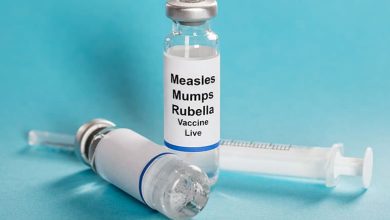
The Nigeria Centre for Disease Control and Prevention (NCDC) has issued a stark public health advisory following a significant surge in cholera cases across 30 Local Government Areas (LGAs) spanning nine states in the country. The alarming rise in infections was highlighted by the NCDC Director-General, Dr. Jide Idris, during a media briefing held in Abuja on Friday.
Dr. Idris expressed deep concern over the escalating situation, emphasizing that the ongoing rainy season could further exacerbate the spread of the waterborne disease, posing a serious threat to public health.
“As of April 28, 2025, over 1,141 suspected cholera cases and 30 deaths have been reported across multiple states, with Bayelsa, Lagos, Abia, and Zamfara among the most affected,” Dr. Idris revealed.
The NCDC Director-General attributed the current cholera outbreak to prevalent issues of poor sanitation, limited access to clean and safe water sources, and the widespread practice of open defecation across affected communities. He stressed that these factors are significantly contributing to the rapid spread of the disease.
Collaborative Efforts Underway to Combat Outbreak
Dr. Idris assured the public that the NCDC is actively collaborating with various stakeholders, including state governments, the Federal Ministry of Water Resources, and numerous development partners, to implement robust measures aimed at tackling the outbreak. These efforts include strengthening disease surveillance systems to detect and respond to cases more effectively, expanding access to oral rehydration therapy (ORT) to manage dehydration caused by cholera, and intensifying public health education campaigns to promote essential hygiene practices within communities.
Lassa Fever Remains Endemic Despite Decline in Weekly Cases
Providing an update on the Lassa fever situation in the country, Dr. Idris reported a welcome decline in the number of weekly cases recorded. However, he cautioned that the viral hemorrhagic fever remains a persistent threat in traditionally endemic states such as Edo, Ondo, and Bauchi.
“We must not relax. The virus is still circulating in the rodent population,” Dr. Idris warned, urging continued vigilance and proactive measures to prevent infections.
Mpox Transmission Ongoing in Several States
Dr. Idris also informed the public about the ongoing transmission of Mpox (formerly known as monkeypox) in Nigeria. He noted that recent cases have been reported in Lagos, Rivers, and the Federal Capital Territory (FCT). While no deaths related to Mpox have been recorded in the past month, he emphasized that the virus continues to spread primarily through close physical contact with infected individuals or animals.
Cerebrospinal Meningitis Outbreaks Reported in Northern States
Regarding Cerebrospinal Meningitis (CSM), Dr. Idris reported outbreaks in the northern states of Sokoto, Kebbi, and Yobe. He highlighted that these outbreaks are predominantly affecting children and young adults. Dr. Idris confirmed that vaccination campaigns are currently underway in the high-burden areas of these states, with support from the National Primary Health Care Development Agency (NPHCDA) and Gavi, the Vaccine Alliance.
NCDC Warns Against Irrational Use of Antibiotics Amid Outbreaks
A critical aspect of Dr. Idris’s briefing was the urgent need for the rational use of antibiotics in managing the ongoing disease outbreaks. He cautioned strongly against the misuse of antibiotics, particularly in the treatment of cholera and Lassa fever, warning that such practices could significantly exacerbate the growing threat of antimicrobial resistance (AMR).
“We must remind our health workers and communities that not every illness requires antibiotics,” Dr. Idris stated emphatically. He stressed that the inappropriate use of antibiotics during outbreaks represents a silent pandemic that could severely undermine the ability to effectively treat infections in the future.
Public Urged to Embrace Preventive Measures and Collective Responsibility
In conclusion, Dr. Idris urged all Nigerians to adopt crucial preventive measures to protect themselves and their communities from these disease outbreaks. These measures include practicing regular and thorough hand washing with soap and water, ensuring proper and safe disposal of waste, and seeking early medical attention at healthcare facilities if they observe any symptoms associated with the listed diseases.
He emphasized that safeguarding public health is a shared responsibility, calling on the media and civil society organizations to actively support risk communication efforts and engage with communities to promote healthy behaviors and prevent further spread of these infections.







